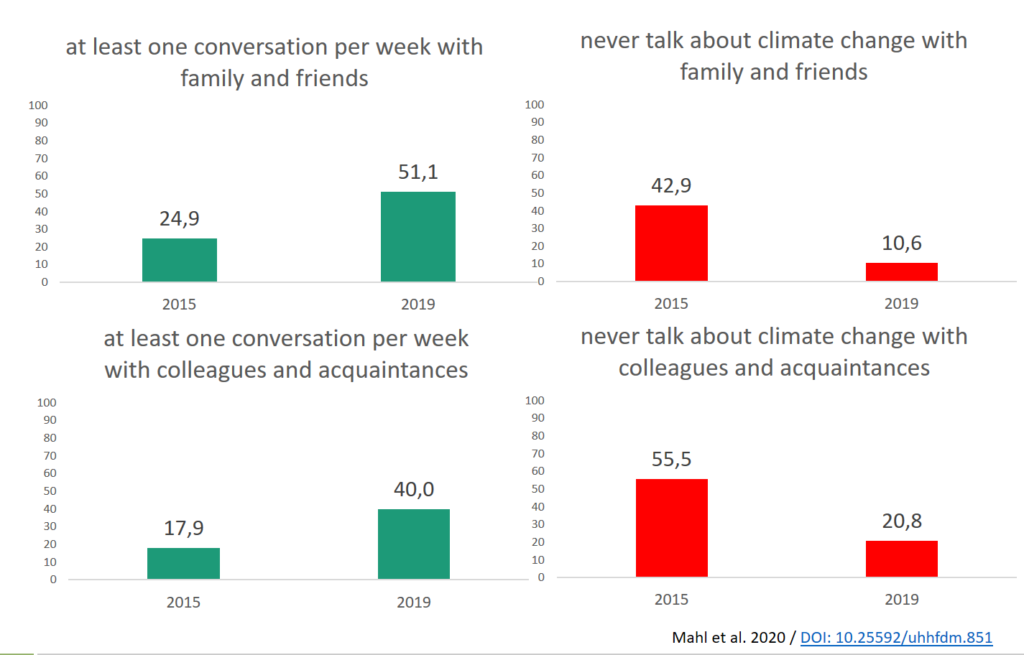When did you talk about climate change the last time? And when did you do so with family and friends? Results from our surveys show that on the one hand, the amount of people talking about climate change in their daily lives is rising steadily (see Guenther et al. 2020, in German), but on the other hand, a significant share of people never touch the topic in their conversations. For many, it is a somewhat awkward topic, leading to conversations about guilt and depressing visions for our future.
Rising share of conversations about climate change in daily life, source: Down to Earth data 2015/2019.

In this post, I’ll summarize why it is a good idea to talk about climate change, even if you are not a climate expert, and which strategies mostly lead to a constructive conversation.
Why talk about climate change?
Since you are reading this blog, climate change is probably a topic of interest to you, so it would be only normal to talk to others about it. Also, research has shown that interpersonal discussions matter for changes in attitudes and shape our perceptions of the social norms around us. Thus, they can also be a pathway leading to behavioural changes. Especially conversations with close friends and family have an impact on what we think about a topic like climate change (see e.g. Goldberg et al. 2019).
In most cases, a conversation does not primarily provide new pieces of information, but serves to socially contextualise information and help the discussants to emotionally deal with the topic.
How to talk about climate change?
Since climate change can be a difficult topic, depending on your conversation partner’s knowledge and attitudes about the topic, a lot of people have already pondered the question how to talk about climate change in a satisfying and productive way.
The UK organisation “Climate Outreach” has published a report on this (for readers short on time: a post on their blog summarizes the main findings). It presents the results of a citizen science project called #TalkingClimate, for which more than 500 participants collected experiences on conversations and analysed factors leading to failure or a feeling of success.
Their main result: Constructive climate change conversations are “not best achieved through persuasion or providing more and more data in an effort to change someone’s mind”, but by “building a connection between two people, based on mutual respect and a willingness to listen to one another”.
In summary, mutual respect is the key to every successful dialogue – and you need not be a climate expert to get other people interested and thinking about the topic.
Note: We have also published “A Short Personal Guide to Climate Change Conversations” for natural scientists.